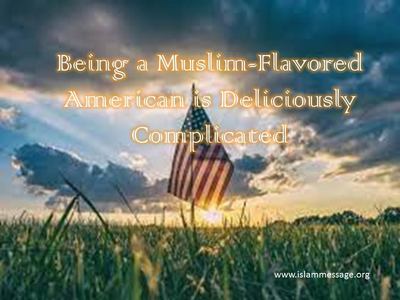
America is a land of many flavors; evident to any airline traveler once they get a glimpse of the variety of eateries in U.S. airports. But what you might not know is that, many of the American “classics” actually originated in other countries!
Hamburgers originated in Germany; ketchup in China and Southeast Asia; pickles are from Europe; apple pie was brought over by English settlers in the early 1600s; frankfurters arrived to the U.S. via Germany in the 1800s. Mustard was originally used to spice meats and then transformed by Egyptians and Romans to be a sauce.
Fried chicken came to the U.S. via the Scottish in the 19th century, potatoes were discovered in South America by Spanish explorers; potato chips are actually an English patent and donuts were introduced to Americans by the Dutch.
French fries are actually Belgian – the “French” term was coined during the World War I era by British and American soldiers. Gummy bears were originally produced in Germany; the origin of ice cream was China; macaroni and cheese is British; peanut butter (as we know it today), was first produced in Canada; and the All-American favorite – pizza – originated in Italy!
And the Muslim “flavor”?
For some Americans, it’s off-the-scales, fearsomely spicy, with a tendency to trigger fiery reactions. For others, the Muslim flavor remains strangely bittersweet, with a hint of piquancy somewhat outside their comfort zone. Bottom line: there’s no familiar identity to the American palate when met with a Muslim flavor.
It’s not easy writing about the Muslim-American identity, because there are so many undefined notions of Muslim-ness and American-ness that the point seems moot.
What needs to be recognized is that many first and second generation Muslim-Americans have various cultural layers unwittingly attached to them, and sifting between them can be difficult.
Among the layers comprising the identity of a Muslim American are national identity, being a citizen of the country, and an integral member of society.
Another layer is cultural identity. Assuming one is not native-born, Hispanic, or a convert from other ethnic groups; most Muslim-Americans trace their roots to some African, Arab, or Asian country that probably doesn’t get a lot of good press in the U.S.
Then, of course, there is religious identity.
Juggling between these identities can be cumbersome at times. It depends subjectively on one’s attachment to a particular identity. For some, strong religious beliefs and being identified as ‘Muslim’ is predominant, as seen in the example of preferring to be identified as Muslim-American vs. American-Muslim.
What do we know about American Muslims?
According to a 2017 Pew Research Study, “U.S. Muslims also put a premium on working for justice and equality in society, and 62% consider it essential to safeguard the environment. About half (48%) of U.S. Muslims say eating halal (religiously sanctioned) food is essential to their religious identity, and 44% say the same about dressing modestly.
Roughly four-in-ten U.S. Muslims (41%) say getting married is essential to their Muslim identity.
While American Muslims express great attachment to their own identity, many do not see their Muslim and American identities as being mutually exclusive. In fact, six-in-ten U.S. Muslims say they have “a lot in common with most Americans.”
Some Muslim-Americans would like to think they can fully embrace the myriad of identities simultaneously ascribed to them; however, I have my doubts. On a personal level, I happen to be a native-born U.S. citizen who spent her formative years in Pakistan, while receiving my higher education in the U.S.
Are we confused?
I remember spending considerable time in confused contemplation; asking myself, ‘who am I’? (Hence the popular moniker ‘American-Born Confused Desi’ or ABCD).
After being Muslim, am I American next or Pakistani? I later came to the realization that I am neither; that in many ways I am my own composite – concluding that there were enough contradictions associated with both labels that the task of identifying one over the other was futile.
There is no archetypical ‘American’ or ‘Pakistani’, though one’s leanings could be towards a certain side of the spectrum.
Certain identity issues that I noticed many Muslim-Americans go through were also manifested in the wider Muslim-American community.

Culture still winning over brotherhood
One weakness is affiliation with the faith; for many Muslims this has yet to trump cultural associations, making it harder to organize and unify the community.
In my own estimation, the Muslim-American community fares far better in terms of education and economic status than their counterparts in European countries; with the possible exception of Britain.
Muslim-Americans who are more serious about their religion vs. wearing it as a nominal badge, will encounter two contrasting narratives from their religious leaders. The first is the need to integrate; becoming active and highly involved members of society, socially productive and contributory.
The second narrative is the need to maintain one’s distinct spiritual purity and moral values in the sinking ship of social degradation; to not lose one’s family bearings and be tainted by materialism.
While maintaining both positions is possible to a degree, there is a subtle tension between these viewpoints that has yet to be properly resolved. It’s not an uncommon experience for diaspora communities to feel torn between wanting to be culturally unique, while being fully assimilated in a new country.
For Muslims, the problem is difficult because our spiritual traditions may not always mesh with mainstream views.
Insha’Allah, I hope that the Muslim-American community finds a way to reach a more confident, assured state that doesn’t always bend to a defensive posture as it has post-9/11. And with this, somehow finds a balance between the cultural, religious and national; a sweet spot that would make it the envy of Muslims worldwide.
Maybe then we will see the Middle Eastern flavor – shawarma – granted the status it deserves; as one of America’s newest, favorite comfort foods.


